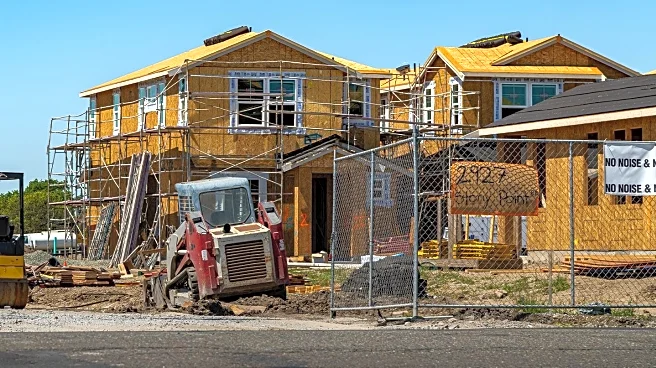What's Happening?
Habitat for Humanity International, under the leadership of CEO Jonathan Reckford, has significantly expanded its operations in response to the Indian Ocean tsunami and Hurricane Katrina. These events
prompted the organization to prioritize affordable housing on a global scale. Reckford, who took over as CEO in 2005, has overseen Habitat's transformation from a grassroots movement to a large-scale operation capable of addressing housing needs in disaster-stricken areas. The organization has also launched initiatives like the MicroBuild Fund, which has provided $230 million in loans to microfinance banks, facilitating home improvements for a million people worldwide.
Why It's Important?
The strategic shift by Habitat for Humanity highlights the increasing global demand for affordable housing, especially in the wake of natural disasters. By focusing on scalable solutions and leveraging microfinance, Habitat is addressing a critical gap in housing finance for low-income families. This approach not only aids in disaster recovery but also contributes to long-term economic stability and resilience in affected communities. The organization's efforts underscore the importance of sustainable housing solutions and the role of nonprofits in driving social change.
What's Next?
Habitat for Humanity plans to continue its focus on affordable housing, with upcoming projects like the Jimmy and Rosalynn Carter Work Project in Austin, Texas. The organization is also preparing to launch a larger fund to expand its microfinance initiatives. These efforts aim to further scale Habitat's impact and address the growing housing affordability crisis. Additionally, Habitat's work may influence policy discussions on disaster recovery and housing finance, encouraging more investment in mitigation and sustainable development.








